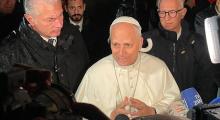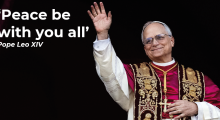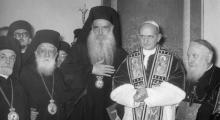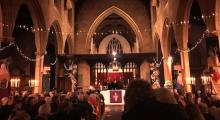Issued by the Catholic Center for Studies and Media - Jordan. Editor-in-chief Fr. Rif'at Bader - موقع أبونا abouna.org
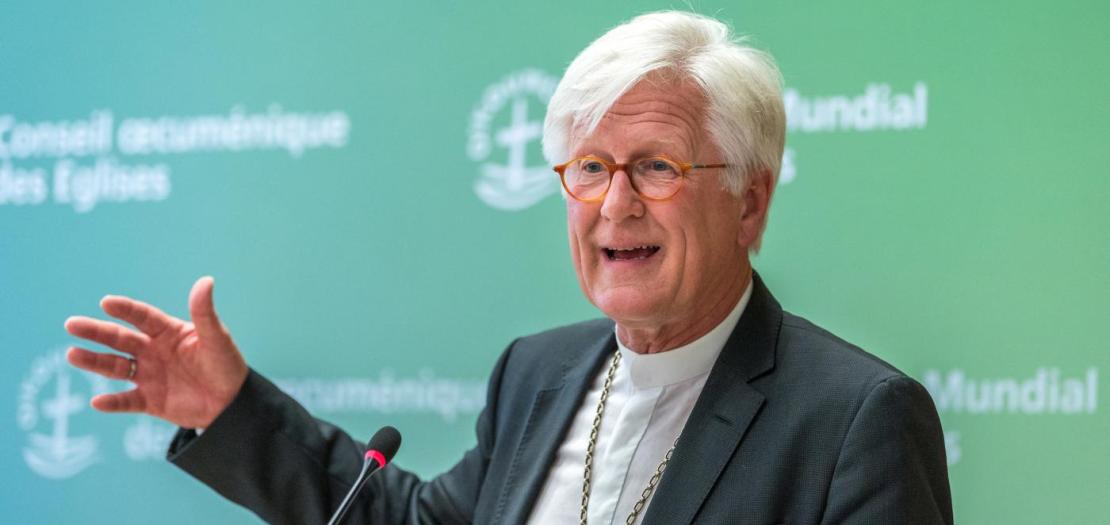
World Council of Churches (WCC) moderator Bishop Dr. Heinrich Bedford-Strohm, speaking at the WCC central committee meeting, focused on how the WCC can possibly address and respond to so many challenges in the world today.
On June 21, 2023, WCC central committee moderator Bishop Dr. Heinrich Bedford Strohm delivered his address to the World Council of Churches central committee, gathered in Geneva on 21-27 June 2023 for its first full meeting following the WCC 11th Assembly in Karlsruhe in 2022.
“We often feel as if we don’t know where to start,” he said. “The climate emergency that is already causing so much suffering around the world, and leaves our young people wondering whether they’ll have a future at all.”
Polarization has evaporated our ability to have meaningful dialogue or even civil discourse, Bedford-Strohm added.
“If we cannot be unified as churches, how can we even begin to bridge the canyons carved between our countries?” he asked. “The most obvious symptom of our situation is violence.”
He cited the horrific and costly armed violence in Ukraine, Syria, Sudan, and its perennial threat to erupt in Korea, Palestine, and Israel. “But our world is also plagued by the daily and increasing violence in our streets and homes and by the continuing scourge of gender violence and attacks against ethnic and sexual minorities,” he said. “Closely related, we see the momentous disruptions and humanitarian disasters caused by such violence and by climate change.”
Fundamentally, in all this, Bedford-Strohm believes we are experiencing a crisis of values. “As we approach the 75th anniversary of the inaugural assembly of the WCC, we need to recall that, then too, the world struggled with global catastrophe: a world that suffered 60 million dead in World War II, that left countless refugees needing housing and resettlement, that quickly divided into opposing ideological camps threatening each other with total annihilation,” he said. “Then, and many times since then, the World Council of Churches through the faith, hope, and love of its member churches, ecumenical partners, and civil society allies, served as a crucial catalyst, advocate, and servant of all to help heal and reform the post-war world.”
The WCC will serve the world through its Pilgrimage of Justice, Reconciliation, and Unity, Bedford-Strohm said. “The Word Council of Churches is more important than ever to proclaim healing to a broken world and act upon it.”


